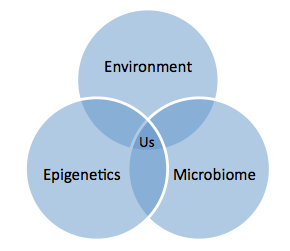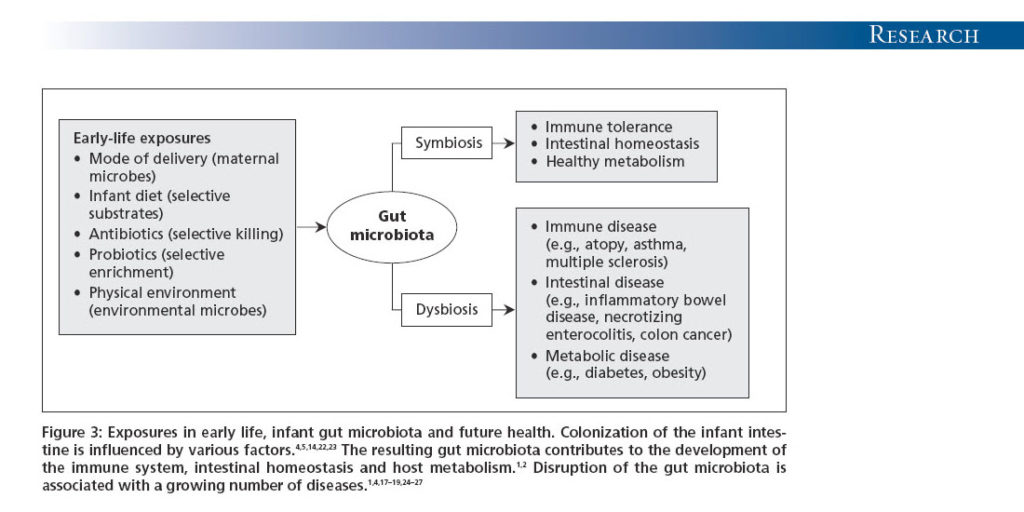Have you also been wondering why on earth so many adults and kids are physically or mentally unwell? Why we seem to have an ever-increasing rate of health disorders and diseases today?
I mean you only have to glance around, and you’ll see just how many kids look unwell. If they aren’t overweight or obese, many have low muscle tone, they are often pale and puffy with allergies or inhaling on an asthma pump. Others seem dazed and vacant because they’ve been medicated up to their eyeballs and labelled with a learning or a behavioural issue. Every child has their own individual story and journey that has put them on this trajectory. Working with parents all over the world, I understand this only too well.
 Here are just a few stats to give you an idea of the scope of the issues at hand:
Here are just a few stats to give you an idea of the scope of the issues at hand:
- 46% KIDS suffer with a chronic disease.1
- Fifteen years ago, type 2 diabetes was rare, now 1 in 3 children are overweight or obese and are predicted candidates for diabetes. The same rate of incidence apply to adults.2
- One out of six children now have some form of neurodevelopmental disorder or delay, such as a learning disorder, hyperactivity or autism.3
- ADHD, the most common brain disorder of childhood, affects about 1 in 10 children in the United States,4
- At least 1 in 56 children now suffers with autism spectrum disorder. 5
The incidence in Australia has doubled since 2009. While the Centres for Disease Control and Prevention (CDC) reported a 123% increase from 2002 to 2010 in the prevalence of autism spectrum disorder (ASD) among 8-year-old children, the age of peak prevalence, in a regional network.6
- 1 in 5 have asthma 7
- We have had a 50% increase in allergies in the last 2 decades.8
- 1 in 6 couples struggle with infertility. British Medical Journal reported that men produce less than half the sperm their grandfathers did at the same age 9
- It’s estimated that this year (2019), an estimated 136 people will die from cancer each day in Australia 10
It doesn’t take a mental giant to appreciate that kids and adults
are struggling.
But why, what’s going on?
Is it the environment?
Is because of what we’ve done to our food?
Is it a parenting issue?
Is it a gene issue?
When human struggles leave us bewildered, it’s good to take stock from Mother Nature. Stay with me here. Imagine if all the fish in a lake system either died or developed cancerous tumours. What do you think the biologists sent to examine the disaster would do?
Would they operate on the fish and cut out their tumours and put chemotherapy drugs into the water ways?
 Of course not. Biologists would examine the environment of the fish and the ecosystem and work out what changed to create the carnage. They would consider other factors that may have changed as well and then set to task on creating balance again in the ecosystem.
Of course not. Biologists would examine the environment of the fish and the ecosystem and work out what changed to create the carnage. They would consider other factors that may have changed as well and then set to task on creating balance again in the ecosystem.
When we have a health challenge, the typical response is to mask the symptoms with pills, potions or a procedure, and return to business as usual. We rarely look at what has caused the symptoms or imbalances, and as such the body frequently continues to struggle. Inevitably, symptoms and challenges continue to arise.
The take home here is – it’s always important to ask what’s moved my body out of balance, and what are these symptoms trying to tell me?
When we inspect our lifestyle habits, we need to consider them individually. Do they move us into balance or further away from self-regulation and wellness? The body always leaves us clues and is always trying to recreate balance and order.
So, could these disorders be due to our genes?
To try and distinguish the cause of all of these illnesses more clearly, let’s look at autism for example. It is believed that autism is genetic. There is nothing you can do about it.
Much of this theory was based on a handful of studies that concluded that autism is genetic in nature back in the 70’s. New York based clinician, professor, brain researcher and bestselling author specializing in Autism, ADHD, and other neurobehavioral disorders, Doctor Rob Mellilo says,
“Let’s put science aside for the moment and just use common sense. Think about it. If autism is caused by a defective gene, then why are almost all parents of autistic kids not autistic themselves? Since the majority of people with autism never marry and have children, then why aren’t we seeing a decrease rather than an increase in the disorder? Does it really make sense that more and better diagnoses can explain why rising autism in schools is commonplace these days when it was almost unheard of just a generation ago? What does it mean when mentally healthy couples have multiple children with autism, something we are also seeing more often these days? And why are we seeing more autism in well-to-do communities?
Genetics alone cannot answer any of these questions. In fact, autism as a genetically caused condition is rare. A study published in the American Journal of Medical Genetics shows only 5 to 15 percent of autism is caused by a genetic mutation. We call this syndromic autism, and it mimics only some of the symptoms of autism. The other 85 to 95 percent (which is referred to as essential autism) is being driven by some outside influence. Yes, genes play a role, but what’s going on around us is playing a greater role. The proof is found in the relatively new science of epigenetics, which tells us that our environment, to a great degree, can manipulate how our genes behave. Epigenetics has given us a whole new understanding of how autism evolves.”11
Epigenetics is the study of how these factors influence our genetic expression; essentially, how the DNA sequence within our genome is read. Epigenetics is an additional layer of instructions that lies ‘on top of’ DNA, controlling how the genes are read and expressed. The genes that constitute our inherited “book of life” do not have to be, and may never be, expressed. The primary influences on which of our genes actually gets expressed are individual dietary, lifestyle and other environmental factors
Epigenetics can be thought of as the interpretation of the genetic code. Just as the same piece of music will change slightly when interpreted by different orchestras, so does our genetic ‘score’ when interpreted by the epigenetic orchestra. Please see our blog Epigenetics and Concerns About Genetic Predispositions for a deeper understanding of genetics.
“Genes alone do not tell the whole story,” states Francis S. Collins, MD, director of the National Institutes of Health and architect of the Human Genome Project.
“Recent increases in chronic diseases like diabetes, childhood asthma, obesity, or autism cannot be due to major shifts in the human gene pool as those changes take much more time to occur. They must be due to changes in the environment, including diet and physical activity, which may produce disease in genetically predisposed persons.”12
Interestingly, he did not mention anything about toxic chemicals, such as pesticides and heavy metals. We know that there is abundant research outlining the deleterious health impact of environmental toxins.
 So, we are beginning to understand that at the crux of all of the physical and mental health challenges we are facing today is a rapidly changing environment. One that has been changing dramatically since Industrialisation. Our modern environment is triggering the way in which genes function. Furthermore, these factors impact our microbiome and other functions within the body.
So, we are beginning to understand that at the crux of all of the physical and mental health challenges we are facing today is a rapidly changing environment. One that has been changing dramatically since Industrialisation. Our modern environment is triggering the way in which genes function. Furthermore, these factors impact our microbiome and other functions within the body.
So, how do these lifestyle factors impact our health and result in these diseases?
Ohhh, let me count the ways. This whole topic is my jam. I’ve spent years wading through the research familiarising myself with the physiological processes involved. To keep things simple, let’s look at one research paper to start.
 The Canadian Medical Association Journal in 2013 13 outlined that two of the most influential driving factors for disease appear to be how we are born, and whether we were breastfed or not. The article states
The Canadian Medical Association Journal in 2013 13 outlined that two of the most influential driving factors for disease appear to be how we are born, and whether we were breastfed or not. The article states
“the mode of delivery and lack of breastfeeding disrupt gut balance which has been linked to an increasing number of diseases, including inflammatory bowel disease, diabetes, obesity, cancer, allergies and asthma.”
The above diagram outlines that colonization of the infant intestine is influenced by various factors. The resulting gut microbiota contributes to the development of the immune system, intestinal homeostasis and host metabolism. Disruption of the gut microbiota is associated with a growing number of diseases.
Still, much needs to be learned about what influences infant gut microbiota, and how these changes may result in associated health outcomes. What constitutes a healthy or “ideal” microbiota? Are bacterial richness and diversity fundamentally important, or is it more critical to acquire specific bacteria in a particular combination and what additional factors drive the colonization of the infant gut?
The exciting part of learning about our microbiota or microbiome is that we can begin to appreciate how our modern lifestyle offsets our microbial balance, which in turn sets off a cascade of other changes within the body including increased permeability of membranes, systemic inflammation and brain inflammation and epigenetic changes within our genes. My hope is that, as we learn more about how the following environmental and lifestyle factors are offsetting our health, we can also learn how to avoid or minimise these illnesses.
Here are just some of the lifestyle factors that appear to impact our microbiome, genes and mitochondria.
- High stress levels of couples prior to pregnancy,
- Modern foods, industrial foods that are lifeless, create deficiencies and are incredibly taxing on the body.
- GMO foods
- High body burden of toxins
- Overuse of drugs and medications (including antibiotics, anti-inflammatories, vaccines prior to conception, during pregnancy, birth and childhood)
- Smoking, drinking, party drugs,
- Radiation
- Chemicals in our foods, self-care products, water
- Pesticides and their impact on our gut bacteria
- Environmental toxins – air pollution and airborne toxicants
- Modern birth practices
- De-emphasis on breast-feeding
- Excessive concern for sanitation and hygiene
- Poor gut health
- Neuroinflammation
- Folate status
No small list I know but better the devil we know and seeing’s as we live in an information age, it’s always best we appreciate that ignorance is a choice.
. . . . .
 Yours in Health,
Yours in Health,
Jennifer Barham-Floreani
(Bach. Chiropractic, Bach. App Clinical Science
Registered internationally, no longer practicing as a chiropractor in Australia.)
. . . . .
References:
1
Christina D.Bethell PhD, MBA, MPH Michael D.Kogan PhD et al. A National and State Profile of Leading Health Problems and Health Care Quality for US Children: Key Insurance Disparities and Across-State Variations. Academic Pediatrics. Volume 11, Issue 3, Supplement, May–June 2011, Pages S22-S33
2
Cunningham SA1, Datar A2, et al. Entrenched obesity in childhood: findings from a national cohort study. Ann Epidemiol. 2017 Jul;27(7):435-441.
Dana Dabelea, MD, PhD, Elizabeth J. Mayer-Davis, PhD, Prevalence of Type 1 and Type 2 Diabetes Among Children and Adolescents From 2001 to 2009 JAMA. 2014 May 7; 311(17): 1778–1786.
3
Dr Philippe Grandjean, MD, Philip J Landrigan, MD, Neurobehavioural effects of developmental toxicity. February 14, 2014
4
Lara J. Akinbami, M.D.; Xiang Liu, M.Sc et al. Attention Deficit Hyperactivity Disorder Among Children Aged 5–17 Years in the United States, 1998–2009 NCHS Data Brief No. 70, August 2011
5
6
CDC (Cent. Dis. Control Prev.) 2014. Prevalence of autism spectrum disorders among children aged 8 years—Autism and Developmental Disabilities Monitoring Network, 11 Sites, United States, 2010. MMWR Surveill. Summ. 63:1–21
7
Stoner AM1, Anderson SE, Buckley TJ. Ambient air toxics and asthma prevalence among a representative sample of US kindergarten-age children. PLoS One. 2013 Sep 18;8(9):e75176.
8
Jackson KD1, Howie LD, Akinbami LJ. Trends in allergic conditions among children: United States, 1997-2011. NCHS Data Brief. 2013 May;(121):1-8.
9
Elizabeth Carlsen and others, “Evidence for decreasing quality of semen during the past 50 years,” British Medical Journal Vol 305, 1992, pgs 609-613
10
Cancer in Australia 2019. 21 Mar 2019 https://www.aihw.gov.au/reports/cancer/cancer-in-australia-2019/contents/summary
11,12
Autism: The Scientific Truth About Preventing, Diagnosing, and Treating Autism Spectrum Disorders–and What Parents Can Do Now. Dr. Robert Melillo
13
Meghan B. Azad PhD, Theodore Konya MPH, Gut microbiota of healthy Canadian infants: profiles by mode of delivery and infant diet at 4 months. CMAJ, March 19, 2013, 185(5)
14
- Frye RE, Rose S, Slattery J, Macfabe DF. 2015. Gastrointestinal dysfunction in autism spectrum disorder: the role of the mitochondria and the enteric microbiome. Microbial Ecology in Health & Disease.
- Young The intestinal microbiota in health and disease. Curr Opin Gastroenterol 2012;28:63-9.
- Frye RE, Slattery J, Macfabe DF, Allen-Vercoe E, Parker W, Rodakis J,et al. 2015. Approaches to studying and manipulating the enteric microbiome to improve autism symptoms. Microbial Ecology in Health & Disease.
- Gascon M, Vrijheid VM, Martínez D, Forns J, Grimalt JO, et al.2011. Effects of pre and postnatal exposure to low levels of polybromodiphenyl ethers on neurodevelopment and thyroid hormone levels at 4 years of age. Int. 37:605–11
- Frye RE, Sequeira JM, Quadros EV, James SJ, Rossignol DA. 2013. Cerebral folate receptor autoantibodies in autism spectrum disorder. Psychiatry18:369–89



